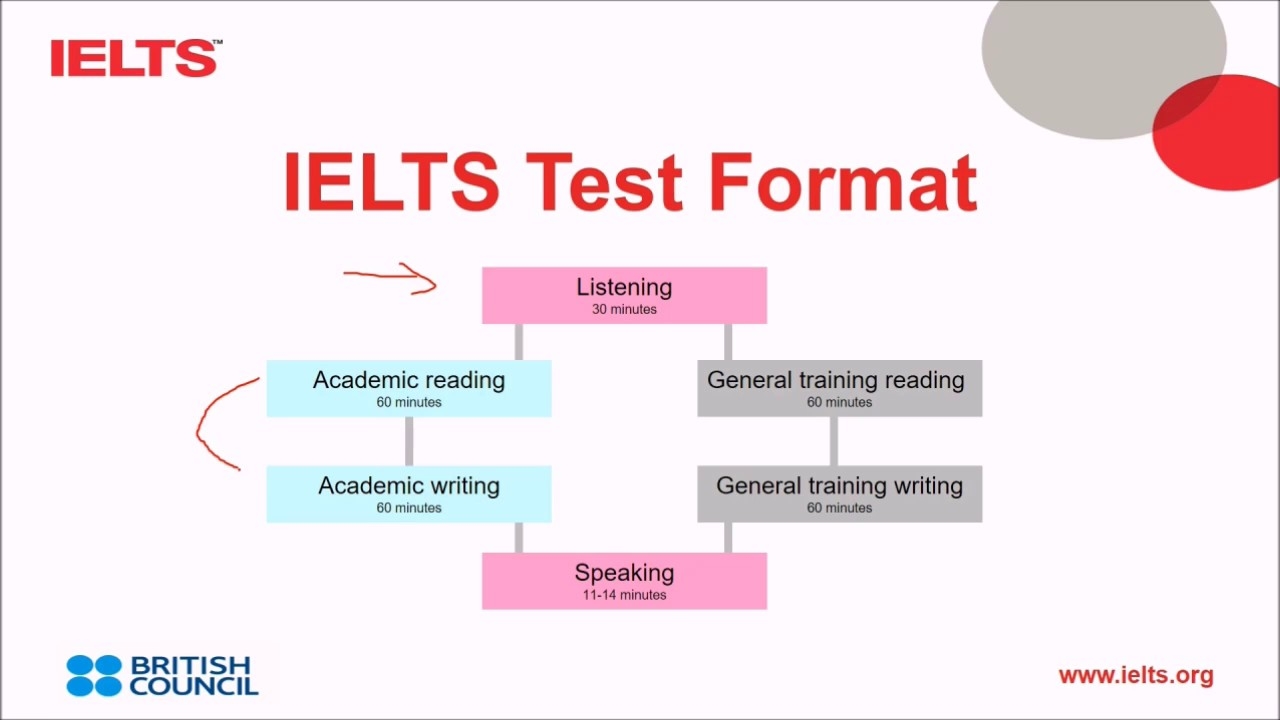How to Achieve A High IELTS Score?
 |
| Photo: Medacs Healthcare |
Facts you should know about IELTS test:
The test has a time span of 2 hours and 45 minutes and is scored on a scale of 9. These scores are valid for two years since the time of taking the test.
There are two types namely:
ACADEMIC VERSION TEST - This is designed for candidates seeking admissions for higher education in universities, for experts in the various field who want to pursue their jobs in Europe.
GENERAL TRAINING VERSION TEST - This is designed for candidates seeking non-academic entries and for work experience or immigration reasons.
The test is usually conducted on Thursdays or Saturdays in a week.
Test Format:
Both the IELTS test types have the four sections namely Reading, Writing, Listening and Speaking, but they differ in the Reading and Writing Section.
The Listening, Reading and Writing Tests must be taken on the same day, while the Speaking test can be attempted seven days before or after the three tests.
 |
| Photo: British Council |
a) LISTENING TEST (40 minutes):
There is a total of 40 questions split into four sections of increasing competence beginning with a monologue or dialogue that acquaints the candidate with the speakers and their environment.
Each section can be heard only once with the questions provided towards the end of it.
b) READING TEST (60 minutes):
It contains 40 questions split into 3 sections.
The Academic Test comprises of 3 long texts in the three sections with questions provided towards the end of each text.
The General Test comprises of 5 short texts in the three sections with questions provided towards the end of each text.
c) WRITING TEST (60 minutes):
It comprises of two tasks of 150 and 250 words respectively.
In the Academic Test, Task 1 requires a description of the given figure whereas Task 2 requires a report to the presented argument.
In the General Test, Task 1 requires writing a letter describing the scene at hand or requesting information whereas Task 2 requires writing an essay regarding a viewpoint or an argument.
d) SPEAKING TEST (11-14 minutes):
It is a face to face oral exam divided into three sections.
The first section is an interview where the candidate may be asked to introduce himself along with questions ranging from his hobbies to general topics.
The second section provides the candidate with a topic and 1 minute preparation time to speak about it.
The third section involves a conversation between the candidate and the examiner relating to the topic in the second section.
How to obtain a high IELTS score
Before you start preparing for the IELTS exam, in order to achieve a good score for admission to a Master’s degree programme, you should make sure that you are fluent in English.
Only after you have a good foundation - a mastery of standard English grammar, academic level vocabulary, fluency in reading comprehension, writing with good grammar and a rich vocabulary, listening comprehension and speaking - can you take the next step: getting familiar with the IELTS format, as cited by Preadvisor.
 |
| Photo: FluentU |
The time taken to improve your overall level of English will differ depending on your starting level and intensity of study. You should then take some time to become familiar with the specific IELTS requirements and accustomed to the exam format.
Here are eleven essential steps that will help you achieve a high IELTS score:
- Start your preparation early, be consistent, and monitor your progress frequently.
- Master standard English grammar in a systematic way.
- Practise using your English skills in four ways – listening, speaking, reading and writing.
- Take every opportunity to communicate in English, orally and in writing.
- Enrich your vocabulary. This doesn’t happen overnight. Aim to learn at least 10 new words from different subject areas every day.
- Read longer texts specialised in different subject areas - management, finance, culture, history, sciences, etc.
- Listen to the news and watch documentaries on various topics in English.
- Practise talking with other English speakers about yourself – your hobbies, interests, everyday life, family, job, dreams and professional aspirations.
- When you have a solid foundation of English language knowledge and skills, join an IELTS course or work with a professional IELTS tutor.
- If you are not sure whether you are ready to start preparing for the IELTS exam, take a diagnostic test and get feedback from a professional instructor on your level and next steps.
- Towards the end of your IELTS preparation, start practising with full-length tests under realistic conditions for several weeks before the test date.
| The aim of IELTS preparation is to make sure you are really fluent in English and ready for a Master’s or an MBA degree programme taught in English. Universities will expect that you be equally good in all four skills. So preparation to sit the IELTS is not simply about obtaining a high score. The most important point is improving your English language skills. |
 How To Learn Second Language Effectively: 7 steps to immerse yourself in the language How To Learn Second Language Effectively: 7 steps to immerse yourself in the language Want to find out how you can learn a new language quickly, without the need for expensive classes or language learning software? There are really ... |
 How To Learn Vocabulary Effectively: Some Useful Methods and Tips How To Learn Vocabulary Effectively: Some Useful Methods and Tips Vocabulary words are tough to memorize at the last minute. Even if you don't have much time left, however, the right approach will go a ... |
 Full lyrics of "Take Me To Your Heart Lyrics" - Michael Learns To Rock Full lyrics of "Take Me To Your Heart Lyrics" - Michael Learns To Rock Michael Learns to Rock is one of the most popular Danish bands, in their homeland as well as the ever-eclectic Asian rim. The group was ... |























